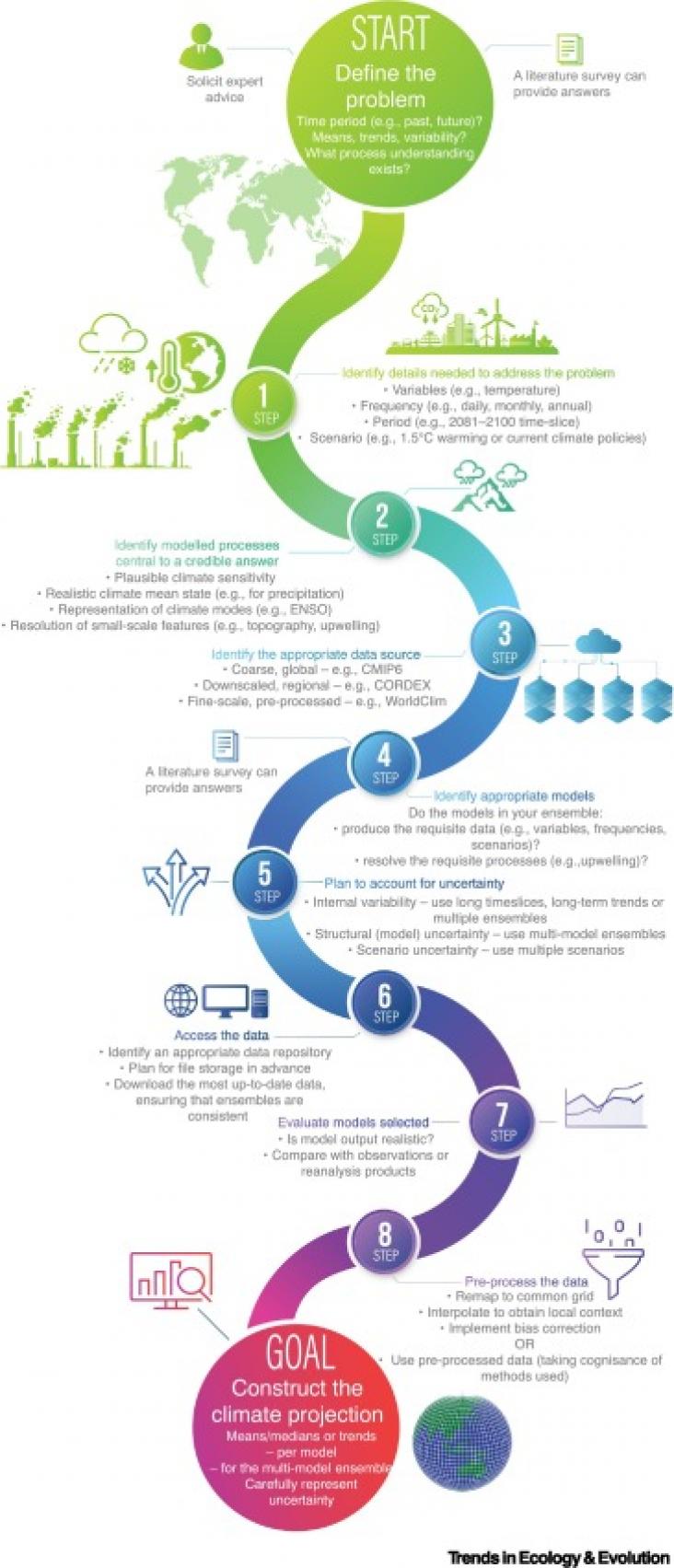
To plan for an uncertain future, life scientists are often required to use the output from climate models to develop recommendations for policy. The authors explain best practice for use of these models, this research supports SDG 2, 13, 14 and 15.
climate change interacts with historical colonialism to shape fisheries in small island developing states. Greater attention to fish as food can improve food sovereignty and reduce historical inequalities
The demand for solar energy as a clean way to power human lives is increasing, but solar panels are land-intensive and may compete for space with farms. In this article, the authors examine how agrivoltaics (combining farming and solar technologies) can provide synergistic benefits together rather than in isolation, showing positive benefits in climate mitigation, climate resilience, and land equivalent ratios. This contributes to SDGs 2 (ensuring the promotion of sustainable agriculture), 7 (harnessing sunlight to power society), and 13 (agrivoltaics as a way to combat climate change).
This Health Policy paper supports SDGs 2, 3, and 13, by identifying and examining the debates that arose from the publication of the EAT–Lancet Commission, systematically examining how research has been directly influenced by the Commission, and synthesising identified research gaps to build a research agenda for healthy and sustainable food systems.
The authors of this paper conclude that reducing Ultraprocessed Drink Consumption could lower environmental impact and all-cause mortality risk; however, this was not shown for Ultraprocessed Foods. When categorizing food consumption by their degree of processing, trade-offs are observed for human and planetary health aspects.

Recognising our customers' exceptional work to achieve the United Nations' Sustainable Development Goals
The community-based MLMC intervention described in this paper had significant impacts on individual intake of dietary fat and carbohydrates. These dietary behaviors are important key factors related to chronic disease risk and further implementation of MLMC interventions could go someway way to improve dietary intake among Native American populations post-colonization.
Elsevier,
Handbook of Food and Feed from Microalgae: Production, Application, Regulation, and Sustainability, 2023, pp 603-610
This chapter aligns with Goal 2: Zero Hunger and Goal 12: Responsible Consumption by exploring the energy and water consumption needs of microalgal production for food production to determine whether microalgae can be considered a sustainable food.
The authors of this paper developed and tested a culturally appropriate food picture-sort frequency tool that is feasible and acceptable to both Navajo children and adults. This tool and its indices have the potential to measure the change for school-based intervention studies among the Navajo Nation because of its cultural appropriateness, ease of administration and low burden, and the convergent validity and reliability of its indices.
This paper concludes that In the participating Dene population, vitamin D, fiber, and calcium intake were low, resulting in deficiencies for the majority of the participants and that Poor nutritional status might be because of several complex and intersecting challenges experienced by northern Indigenous communities, such as the historical context of colonialism, remote food insecurity, and social and environmental inequities. It is suggested that nutrition education, financial interventions, and store-food pricing policies should be put in place to facilitate access to market food, and culturally adequate initiatives, such as community harvest programs, should be put in place to facilitate better access to TFs/CFs.
